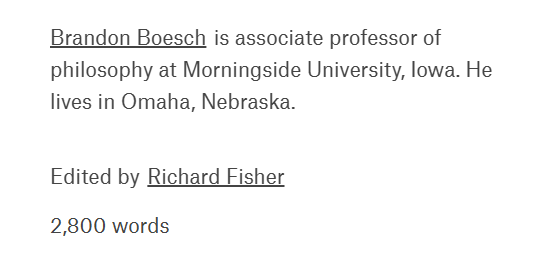Why AI science may well be incomprehensible
 More-than-human science
When AI takes over the practice of science we will likely find the results strange and incomprehensible. Should we worry?
https://aeon.co/essays/when-ais-do-science-it-will-be-strange-and-incomprehensible
More-than-human science
When AI takes over the practice of science we will likely find the results strange and incomprehensible. Should we worry?
https://aeon.co/essays/when-ais-do-science-it-will-be-strange-and-incomprehensible


The science of our age is computational. Without models, simulations, statistical analysis, data storage and so on, our knowledge of the world would grow far more slowly. For decades, our fundamental human curiosity has been sated, in part, by silicon and software.
The late philosopher
Paul Humphreys called this the ‘
hybrid scenario’ of science: where parts of the scientific process are outsourced to computers. However, he also suggested that this could change. Even though he began writing about these ideas more than a decade ago, long before the rise of generative artificial intelligence (AI), Humphreys had the foresight to recognise that the days of humans leading the scientific process may be numbered. He identified a later phase of science – what he called the ‘automated scenario’, where computers take over science completely. In this future, the computational capacities for scientific reasoning, data processing, model-making and theorising would far surpass our own abilities to the point that we humans are no longer needed. The machines would carry on the scientific work we once started, taking our theories to new and unforeseen heights.
According to some sources, the end of human epistemic dominance over science is on the horizon. A recent
survey of AI researchers offered a 50 per cent chance that, within a century, AI could feasibly replace us in every job (even if there are some we’d rather reserve for ourselves, like being a jury member). You may have a different view about whether or when such a world is possible, but I’d ask you to suspend these views for a moment and imagine that such artificial superintelligences could be possible
eventually. Their development would mean that we could pass over the work of science to our epistemically superior artificial progeny who would do it faster and better than we could ever dream.
This would be a strange world indeed. For one thing,
AI may decide to explore scientific interests that human scientists are unincentivised or unmotivated to pursue, creating whole new avenues of discovery. They might even gain knowledge about the world that lies beyond what our brains are capable of understanding. Where will that leave us humans, and how should we respond? I believe we need to start asking these questions now, because within a matter of decades, science as we know it could transform profoundly.
snip


